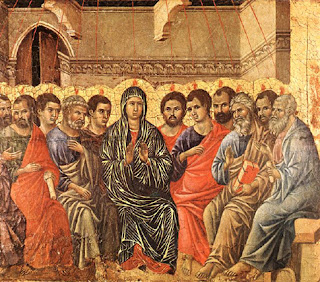Introduction/Conclusion:
At St Luke’s we use the term Pentecostal to describe one of the characteristics of our church but not as the total definition of our church. We want to be open to the movement of God’s Spirit in the world and believe all Christ followers can and should live in real and authentic relationship with the Holy Spirit. We’re committed to that and in all we do want to cultivate that relationship in people’s lives. Inspired speech, inspired deeds, inspired living comes out of relationship with and the empowering of, the Holy Spirit. We do believe in overflowing baptisms of the Holy Spirit subsequent to salvation, we do believe in speaking in tongues, we do believe in Spiritual gifts and their use and function today. We’re not after experience for experience sake though; rather we are committed to God’s will being done on earth as it is in heaven. This is the main thing. The Pentecostal experience is not the main thing; it is just to help us pursue the main thing. Where Pentecostalism can be caricatured both positively and negatively we wish to embrace the positive and leave behind the negative characteristics. So as well as being Pentecostal in nature we’re also committed to a number of other values characterising our church which we’ll explore in other posts.
Body:
Pentecostal has come to mean all sorts of things to all sorts of people. Primarily the term is used to define churches or believers who place great emphasis on an overflowing baptism in the Holy Spirit, distinct from the indwelling of the Holy Spirit at conversion, and evidenced with speaking in other tongues. However Pentecostals around the world have come to be known stereotypically for a lot more than just a distinct perspective on speaking in tongues, sometimes positively and sometimes negatively.
Positive caricatures of Pentecostalism include (and are not limited to); a strong desire to get out there and make a difference in the world in the name of Jesus; a passion for encountering and experiencing the presence and power of God in the Holy Spirit and in the gifts of the Spirit; an ability to present the gospel in light of contemporary culture, an embracing of egalitarianism and the promotion of woman in leadership; an empowering culture which emphasises the priesthood of all believers and the ability of all (theologically trained or not) to have a dynamic and real relationship with God and with God’s word; and an attitude of faith and positivity in all things.
There does seem to be some negative caricatures of Pentecostalism as well; an over focus on feelings and experience often resulting in all sorts of hype; perhaps what could be referred to as theologically or biblically ‘light’ preaching and teaching (largely due to many Pentecostal pastors not being seminary trained); an inability to deal with the pain and suffering that exists in this world due to an overzealous sense of triumphalism; an over-focus on the ‘altercal’ as the primary (spiritual) means for healing perhaps at the expense of other (more material) ways of people finding health and wholeness such as counsellors, psychologists, and doctors; a dualistic worldview in regards that which is spiritual and that which is material; a reluctance for still or quite or reflection.
Obviously these are caricatures and would not necessarily fairly or accurately describe any particular Pentecostal church or believer. Like all caricatures though they are grounded in reality. In light of all of this our hope at St Luke’s is to leave behind some of the negative caricatures of Pentecostalism while still embracing the positive caricatures of Pentecostalism. Thus... (see Introduction/Conclusion).


No comments:
Post a Comment